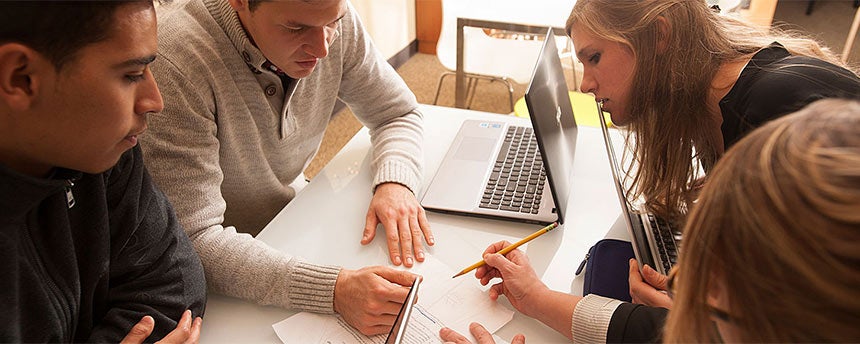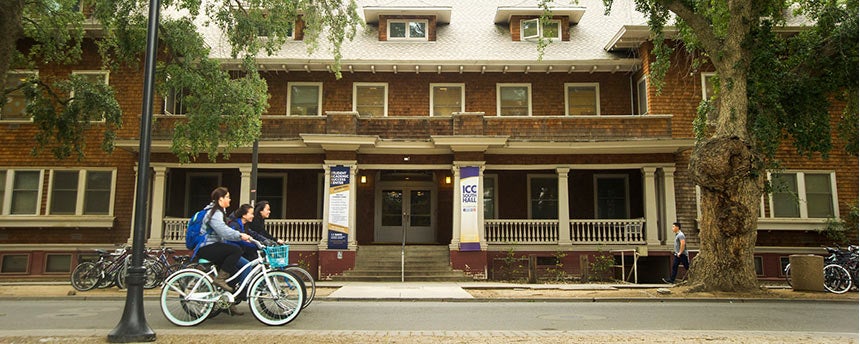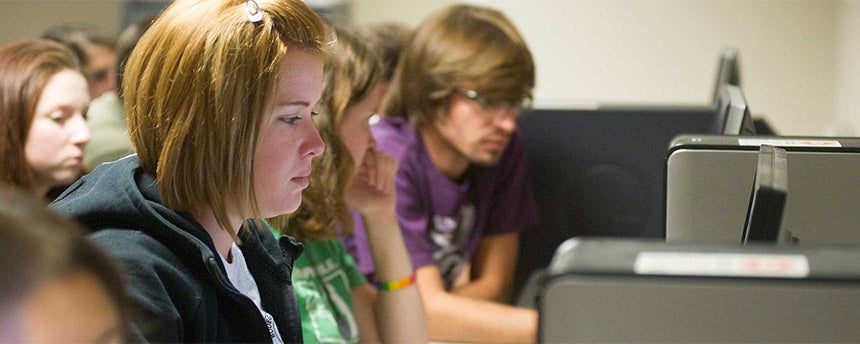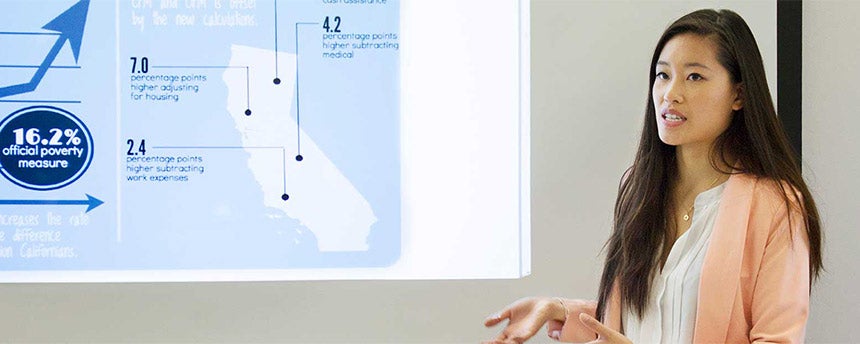Connecting the dots between a university education and a rewarding career can be challenging for undergraduate students. But by taking advantage of many opportunities at UC Davis, you can prepare yourself for job success. Look into doing research with a professor or an internship with a company in your area. And learn how to turn internships into jobs after you graduate. Here are concrete steps you can take:
1. Find research opportunities

While you are an undergraduate, do research on campus or through an off-campus internship to improve your future career prospects. The Undergraduate Research Center at UC Davis can assist you.
These experiences can help you narrow your interests and identify your abilities.
The opportunity can provide skills valued by employers and allow you to interact more closely with faculty mentors as well as with inspiring graduate students.
Your university mentors can become valuable in helping you advance during your career because they know your strengths and can be your advocate. Use them as references and ask them to keep an eye out for you after you graduate.
2. Visit your internship and career center early and often

Students and recent graduates who want to obtain their dream job learn to connect to the Internship and Career Center. Start long before you graduate to build a resume.
Students should find internships and jobs that help test ideas of what they might think they want to do. You can also use the center for career guidance, help with resumes and job interviews. Learn to interview by doing the real thing with many employers who visit our campus throughout the year. You might even get a job!
Marcie Kirk Holland, director of the Internship and Career Center, says it’s a good time for finding jobs through your university. With a better economy, recruiters for management training programs are returning to campuses seeking bright and motivated students, and companies are offering better positions than in past years.
3. Improve your LinkedIn profile

Many employers are trusting social media to find the best candidates for their companies and nonprofits. Understanding the importance of this to UC Davis students, the Internship and Career Center offers professional photos suitable for LinkedIn at each of its regular career fairs with the help of the California Aggie Alumni Association. Arrive at the fair professionally dressed and ready to look your best.
Start your profile on LinkedIn early in your college career and build on it with the experiences you have in college. At the same time, build your network of acquaintances in the work world over time so that when a job comes up that fits your profile, they will know where to find you. LinkedIn visited UC Davis students to give them ideas on how to improve their online eligibility for a job. Here were some suggestions for your LinkedIn profile:
- Obtain a professional-looking photo.
- Use the same keywords in your personal statement as are found in job applications, so that employers and recruiters can find your online profile more easily.
- Make your profile more interesting with blog postings and videos.
- Use previous jobs to list skills that translate to your intended career: time management, meeting deadlines, handling difficult customers and peers.
- Add courses, class projects and videos that show a personal side and thus provide employers a view into your deeper interests.
- Use your online profile to show what you do in your everyday life.
4. Broaden your quantitative skills

All college students, but especially social sciences and humanities majors, can get a leg up on their peers by learning to analyze data.
UC Davis offers a set of classes, called the Data Studies Program, for its liberal arts students and others to learn how to analyze “big data,” an increasingly important skill in the job world.
“Introductory Data Exploration with R,” the gateway course for the program, helps students get their “hands dirty with the same tools used by leading organizations like Microsoft and Google” in this gentle introduction to data. At the same time, they learn how to ask and answer meaningful questions about data.
Students learn how to look at demographic facts and figures, information from mobile phone use, businesses’ customer profiles and even social media postings. The skills gained in understanding how to interpret data can be used for research in many fields.
5. Turn your internships into jobs

Explore what you really want to do by balancing your schoolwork with internships, paid or unpaid, that you can find through your internship center and online. Some of these will help you decide what you don’t want to do, while others may lead to your first job, according to business columnist Susan Adams of Forbes. She offers this advice:
- Use your school’s job postings to find listings.
- Search listings sites like Internships.com, wayup.com and InternQueen, and specialty sites like freefashioninternships.
- Look on LinkedIn, using the “advanced search” tab and typing in the word “Internship.”
- Make a LinkedIn profile if you don’t already have one.
- Treat every internship as though it’s a job interview. In other words, impress your bosses by being a model employee worth recommending for a job.
- Keep working while going to school after your summer break.
6. Use your campus job to explore career paths

Find a part-time campus job that sounds interesting through the Internship and Career Center.
During your employment, learn all you can about it and see if this type of job appeals to you. It may not, but your experiences will give you a much better idea of what you like and don't like in a job.
Perform your best in this position. Show your bosses that you are a good worker, eager to learn and follow directions, complete your tasks on deadline, pay attention to details and add value to what they need accomplished. Listen for feedback about how you are doing and follow through on suggestions for improvement.
Also, look for a mentor who can advise you about the job world and serve as a reference. Sometimes these former bosses will help you throughout your career, offering tips on job openings and advice when you need a good listener.
Susanne Rockwell is web editor for the UC Davis home pages and this blog in the Office of Strategic Communications. She has been helping to tell the story of UC Davis since 1989. An alumna whose husband and daughter also attended UC Davis, Susanne has had to explain what she did with her own major (international relations) to more than one person.